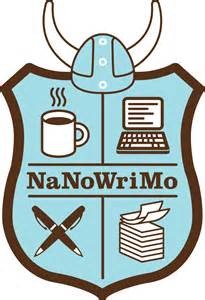For many authors, the thought of voluntarily ending their relationship with their literary agent can be heartbreaking—especially if their agent search was long and difficult, or if they genuinely like their agent. But like a marriage, sometimes what initially looked like an ideal pairing turns out otherwise.
Perhaps you’ve read Kristin’s “What Makes a Good Agent” article series in this newsletter and decided your agent doesn’t measure up. Or possibly you’ve known for some time that the relationship wasn’t working and have concluded it’s time to move on.
Assuming you’ve done everything you can to address the issues with your agent, what’s the next step?
How to Leave Your Agent
First, review your agency agreement. Most contracts specify that the relationship can be terminated by either party with 30 days’ notice.
Unless your agency agreement says otherwise, terminating your relationship by email is fine as long as the agent confirms receipt. If you choose to send your agent a letter via certified mail, it’s a good idea to email him or her in advance to let them know the letter is on the way.
If your agent has submitted your book to publishers, you’ll need to ask for a list of every publishing house he or she submitted your book to. Your agent owes you this information, as well as the status of each of those submissions if any are still pending. Understand that according to most agency agreements, your previous agent will be entitled to receive compensation for sales they made while you were under contract with them, even though you are no longer working together.
As with any professional relationship, take the high road. Feelings and emotions are involved, but don’t get caught up in the emotional aspects of the situation. You may have legitimate grievances. Your agent may be understandably upset. It’s important to stay calm and professional. Be polite and amicable. Thank your agent for all the hard work they did reading and submitting your work without compensation, and move on.
When to Start Looking for a New Agent
Most agents advise terminating your current relationship before looking for another agent. Some authors are understandably nervous about breaking up with their agent before they have another. However, keep in mind that publishing is a small world. If you decide to send out feelers before ending your relationship with your agent, odds are good your current agent will find out.
True story: Agent X and Agent Y, who worked at a different agency, were friends and often referred potential clients to one another. One day, an author looking for a new agent wrote to Agent X. Agent X read the pitch letter and went online to learn more about the author’s book deals—which is how Agent X learned that Agent Y was the author’s agent.
Assuming Agent Y had referred the client, Agent X wrote a quick note to thank him for the referral. Half an hour later, Agent X got an angry email from the author saying he hadn’t yet spoken to Agent Y, and now that agent had fired him. Naturally Agent X was no longer interested in working with this author either.
Once you and your agent have parted ways, your next objective is to find an agent who will be a better fit. It helps to write down what you feel you need in an agent. One you have a list of prospective agents, try to talk to some of their clients if at all possible to ask about the agent’s management and communication style as well as your other concerns. There’s no point in leaving one agent only to fall into the same kind of relationship with the next.
Above all, don’t feel guilty for ending a partnership that isn’t working. This may be difficult if you and your agent are on good terms, but remember: In the publishing world, enthusiasm is incredibly important. Authors need an agent who loves their work, and who believes the author might be the next big thing. If this isn’t the case for you, leaving your agent might be the best decision you ever make.
*****
Karen Dionne is an internationally published thriller author, co-founder of the online writers discussion forum Backspace, and organizer of the Salt Cay Writers Retreat and the Neverending Online Backspace Writers Conference. She is represented by Jeff Kleinman of Folio Literary Management.
Photo Credit: woodleywonderworks










